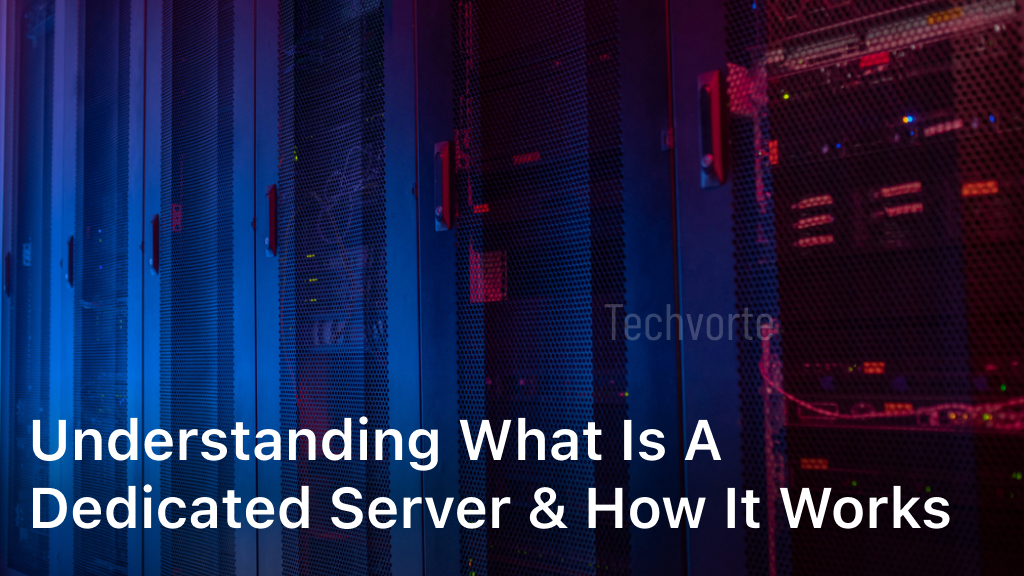If you’re pondering over the best hosting solution for your website, the term “dedicated server” may have crossed your path more than once.
But what exactly does it entail, and more importantly, is it the right choice for you?
In this comprehensive guide, we’ll delve into the world of dedicated servers, uncovering their benefits and helping you make an informed decision.
Understanding Dedicated Servers
What is a Dedicated Server?
A dedicated server refers to a hosting solution where an entire server is dedicated solely to one client.
Unlike shared hosting, where multiple websites share resources on the same server or VPS hosting, which simulates a dedicated server within a shared environment, a dedicated server provides exclusive access and control over all resources.
How Does it Differ from Shared and VPS Hosting?
In shared hosting, resources such as CPU, RAM, and disk space are shared among multiple websites, often resulting in slower performance and limited customization options.
VPS hosting offers a middle ground, partitioning a physical server into virtual compartments, providing more control and resources than shared hosting but still sharing hardware with other users.
Dedicated servers, on the other hand, offer unparalleled performance, security and customization options as the entire server is dedicated to a single user.
Advantages of Dedicated Server Hosting

Switching to a dedicated server hosting plan offers many benefits to businesses and individuals alike.
By opting for dedicated hosting, you can enjoy:
- Enhanced Security: Dedicated servers provide secure hosting environments and eliminate the risks associated with sharing servers with unknown entities. You have complete control over your server’s security measures, including firewalls, intrusion detection systems, and malware prevention tools.
- High Performance: Dedicated servers are designed to handle high traffic loads and resource-intensive applications. You do not have to worry about throttled bandwidth or server lags, ensuring faster processing times and smoother user experiences.
- Scalability: Dedicated servers can be easily upgraded or downgraded based on your needs. This flexibility allows you to adjust your server’s resources to keep up with your business’s growth or handle an unexpected influx of traffic.
- Customization Options: With dedicated server hosting, you have full control over your server’s software and hardware configurations. This means you can tailor your server to meet your unique requirements, install custom applications, and optimize your server’s performance.
Overall, dedicated hosting provides a reliable and secure hosting solution for businesses and individuals with specific needs. With its many benefits, it’s no wonder more and more people are choosing dedicated server hosting.
How Dedicated Servers Elevate Server Management
A dedicated server elevates server management by giving you complete control over the server environment.
As a result, you can optimize performance, install custom software and easily manage resources.
Dedicated servers simplify server management tasks, making it easier to configure and adjust server settings to meet your specific needs.
With a dedicated server, you have full root access to the server, allowing you to make changes to the server’s operating system and configuration.
You can install any software applications that you need, including server and security software or customer relationship management tools, improving the efficiency of your business or website.
Dedicated servers offer customizable server configurations as well, such as customizable firewall and security features, which provide an extra layer of protection against cyber attacks and data breaches.
Additionally, dedicated servers allow you to manage resources like storage, memory and bandwidth, giving you complete control over your server’s performance and maintaining optimal server uptime.
Switching to a dedicated server from shared hosting brings significant improvements to your website’s speed and ability to handle heavy traffic.
This improved performance results in better user experience and search engine rankings, resulting in increased traffic to your website.
Overall, a dedicated server provides numerous advantages over other hosting solutions when it comes to server management.
You have full control over the server environment, enabling you to optimize performance, customize security configurations and easily manage resources.
All these features work together to provide you with an efficient and reliable server, making dedicated servers the ideal hosting solution for businesses and high-traffic websites.
The Cost of Dedicated Server Hosting
One of the primary considerations when choosing a dedicated server hosting provider is the cost.
Dedicated servers are typically more expensive than shared servers, as you have access to all the resources exclusively.
The pricing of dedicated servers can vary widely depending on several factors, including:
- Hardware specifications: The type of processor, amount of RAM, and storage capacity are some of the hardware specifications that can influence the pricing of dedicated servers.
- Bandwidth: The amount of data that you can transfer in and out of your server is another factor that can impact the pricing of dedicated servers. The more bandwidth you require, the higher the cost.
- Support services: Some hosting providers offer additional support services such as server management, monitoring and backups. These services can add to the overall cost of dedicated server hosting.
It is essential to understand the pricing models and plans offered by dedicated server hosting providers to make an informed decision.
Most providers offer different pricing tiers based on the resources you require and some may also offer additional features at additional costs.
Make sure to thoroughly evaluate the offerings of various providers before selecting a dedicated hosting plan that meets your needs and budget.
Conclusion
In conclusion, dedicated servers offer a host of benefits for websites and applications requiring high performance, security, and customization options.
From enhanced performance and reliability to increased scalability and security measures, dedicated hosting provides the resources and control necessary to meet the demands of modern websites.
However, it’s essential to carefully consider your specific requirements, technical expertise and budget constraints before opting for a dedicated server solution.
FAQ
Is a dedicated server suitable for small businesses?
While dedicated servers offer numerous benefits, they may not be cost-effective for small businesses with limited resource requirements. Shared or VPS hosting solutions may be more suitable in such cases.
Can I upgrade my dedicated server resources as my website grows?
Yes, most dedicated server providers offer scalability options, allowing you to upgrade hardware components such as CPU, RAM, and storage to accommodate increased traffic and resource demands.
Do I need technical expertise to manage a dedicated server?
Managing a dedicated server does require a certain level of technical expertise, particularly in areas such as server setup, configuration, and maintenance. However, many hosting providers offer managed dedicated server solutions with optional technical support.
Are dedicated servers more secure than shared hosting?
Dedicated servers offer enhanced security compared to shared hosting, as you have exclusive control over server resources and configurations. However, it’s essential to implement additional security measures such as firewalls, malware detection, and regular security updates to protect your server and data.
Can I host multiple websites on a dedicated server?
Yes, you can host multiple websites on a dedicated server, provided you have the necessary resources and configuration capabilities. However, it’s essential to consider factors such as server performance, security, and resource allocation when hosting multiple sites on a single server.





